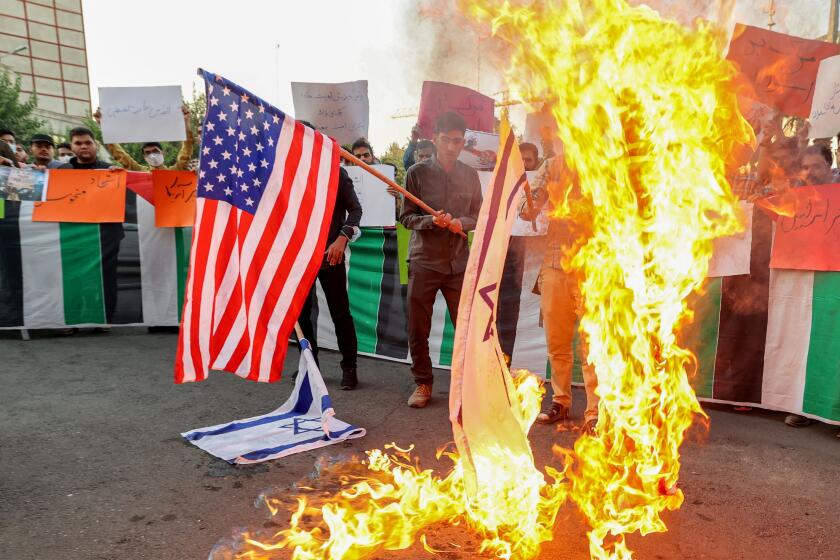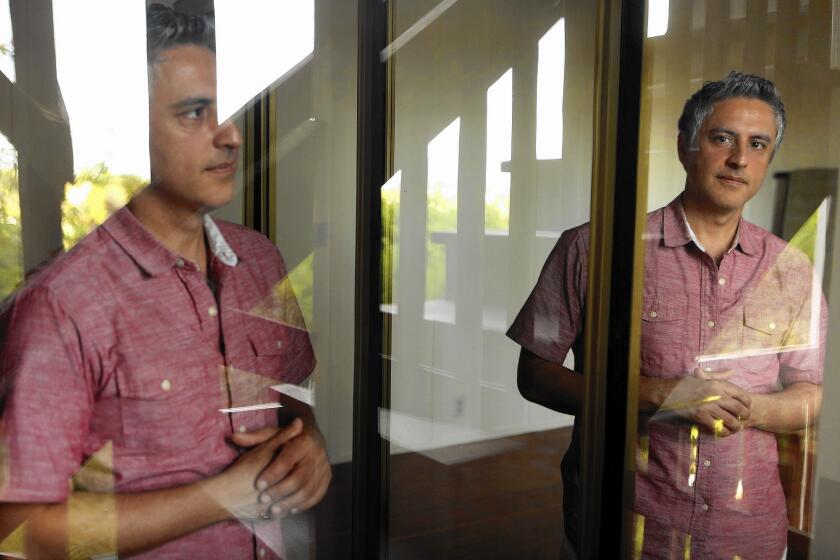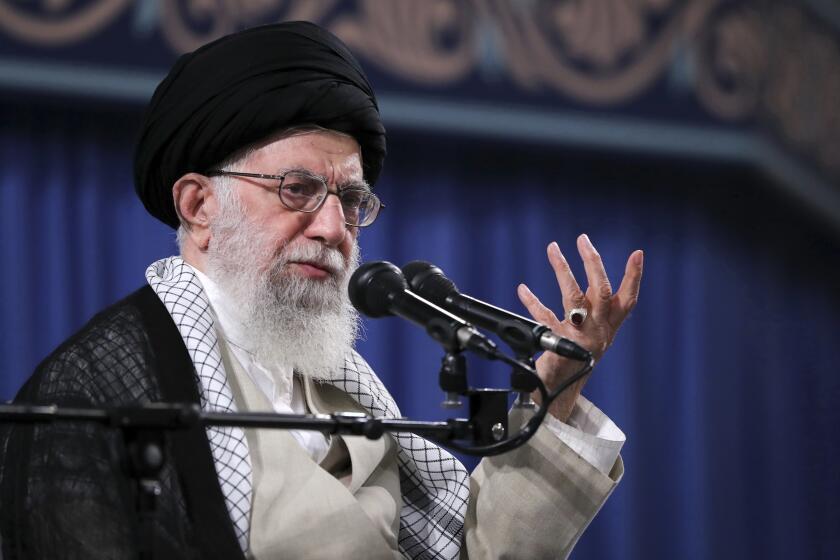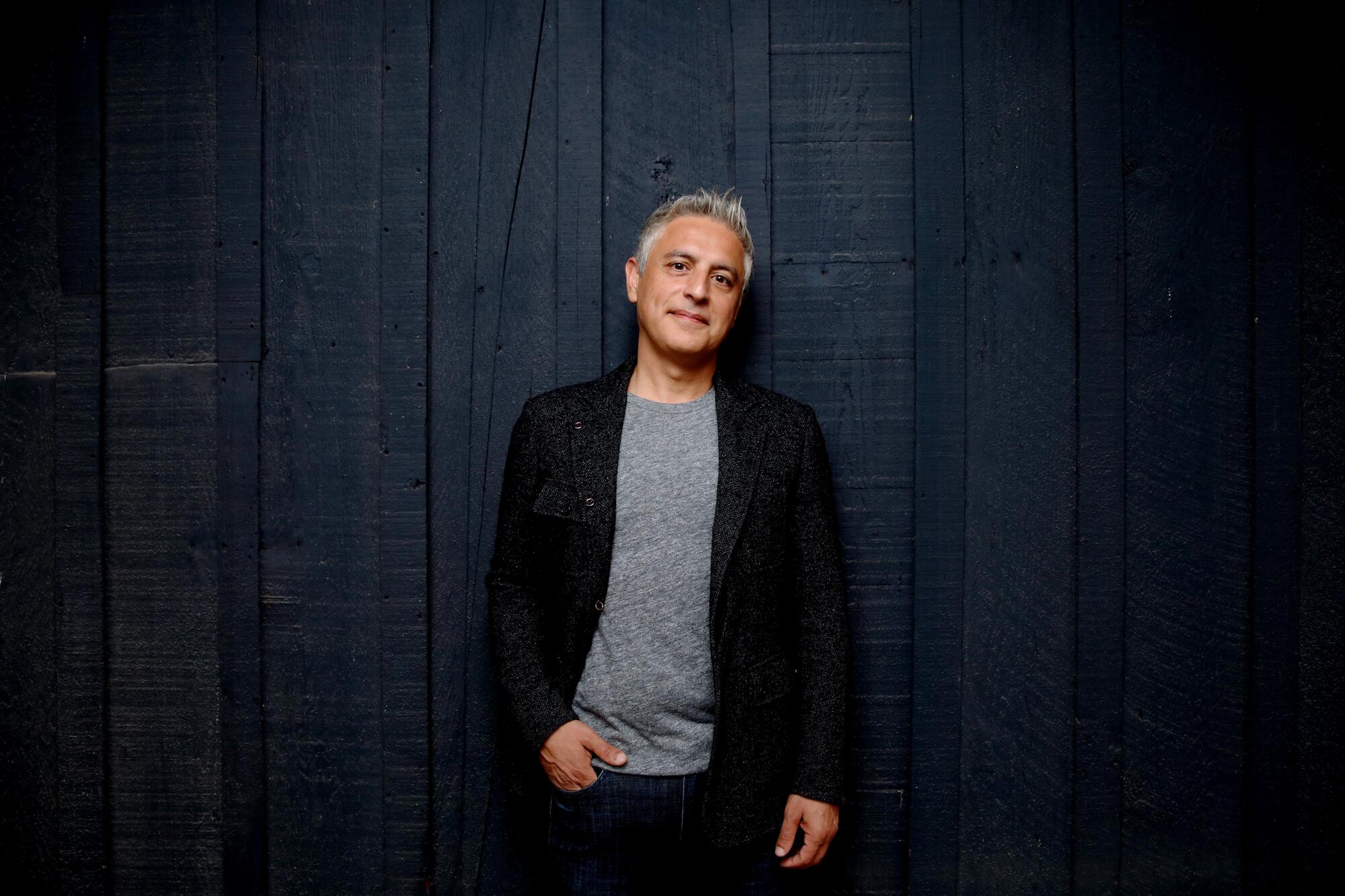
- Share via
On the Shelf
An American Martyr in Persia: The Epic Life and Tragic Death of Howard Baskerville
By Reza Aslan
Norton: 384 pages, $30
If you buy books linked on our site, The Times may earn a commission from Bookshop.org, whose fees support independent bookstores.
Lunching on chelo kabab at Sholeh in the section of Westwood commonly called Tehrangeles, Reza Aslan doesn’t look like the kind of guy who gets death threats. But such threats are exactly why our interview won’t be followed by a book-tour homecoming. A major event scheduled for the following day at the Wallis, meant in part to promote his new book, “An American Martyr in Persia,” had been canceled, along with an appearance planned for the previous week at Stanford’s Center for Iranian Studies.
The fact is that Aslan, a religious scholar, author of the Jesus Christ biography “Zealot” and host of the bygone CNN religious travelogue series “Believer,” is used to receiving messages calling for his demise.
“I have a 20-year career of making enemies,” he says with a shrug. “I’ve been sent death threats by Muslims, Christians, Hindus, atheists, Republicans. When you write about religion and politics, that’s the world you live in. But this is different; it’s the first time I’ve been sent death threats by my fellow countrymen. We’re on the same side. It really is demoralizing.”
Iran is in the middle of a tumultuous autumn as the fundamentalist regime faces its strongest opposition in decades. But threats against Aslan are not coming from the government — at least not directly. He blames the missives on a disinformation campaign that paints U.S.-based progressives like himself, who criticize blanket sanctions and military intervention, as regime supporters. As for who might be behind the recent proliferation of toxic bots and social media accounts relating to Iran, Aslan is sure of only one thing.
“The only one who benefits is the regime,” he concludes. “They have to have the diaspora in disunity and chaos, especially among people with a public voice like mine.”
Author of five books on religion, Aslan immigrated with his family to the Bay Area following the revolution of 1979, which shifted power from an autocratic shah to radical clerics. He holds a bachelor’s degree in religious studies from Santa Clara University, a master’s in theology from Harvard Divinity School, a master’s in fiction from the Iowa’s Writers’ Workshop and a doctorate in sociology from UC Santa Barbara.
Many know him from “Believer,” which was canceled in 2017 when he and CNN parted ways after he called President Trump “a piece of s—” and a “man-baby” for his response to the London Bridge attack.
The 116-year-old Persian Constitutional Revolution spawned the country’s long tradition of protest, seen in recent demonstrations over cuts to food subsidies.
Numbering roughly 700,000, the diaspora in Southern California is the largest population of Iranians outside Iran. Many from the first generation tend to be well off, conservative and hawkish on U.S. foreign policy. The second generation, including Aslan, tends to be more progressive and highly assimilated. Most vexing of all, however, is the Mujahedin-e-Khalq (MEK), which Aslan describes as “a violent Marxist cult.” Formerly on the U.S. list of state-sponsored terror organizations, it has, through political donations, “managed to infiltrate the political right in the United States and set themselves up as the government in exile.”
This push and pull among exiles plays out against a backdrop of a potential revolution fulminating in their home country. In September, the death of 22-year-old Mahsa Amini after her arrest by the morality police for wearing a hijab improperly was the match that lit up every corner of Iranian society, resulting in unprecedented instability.
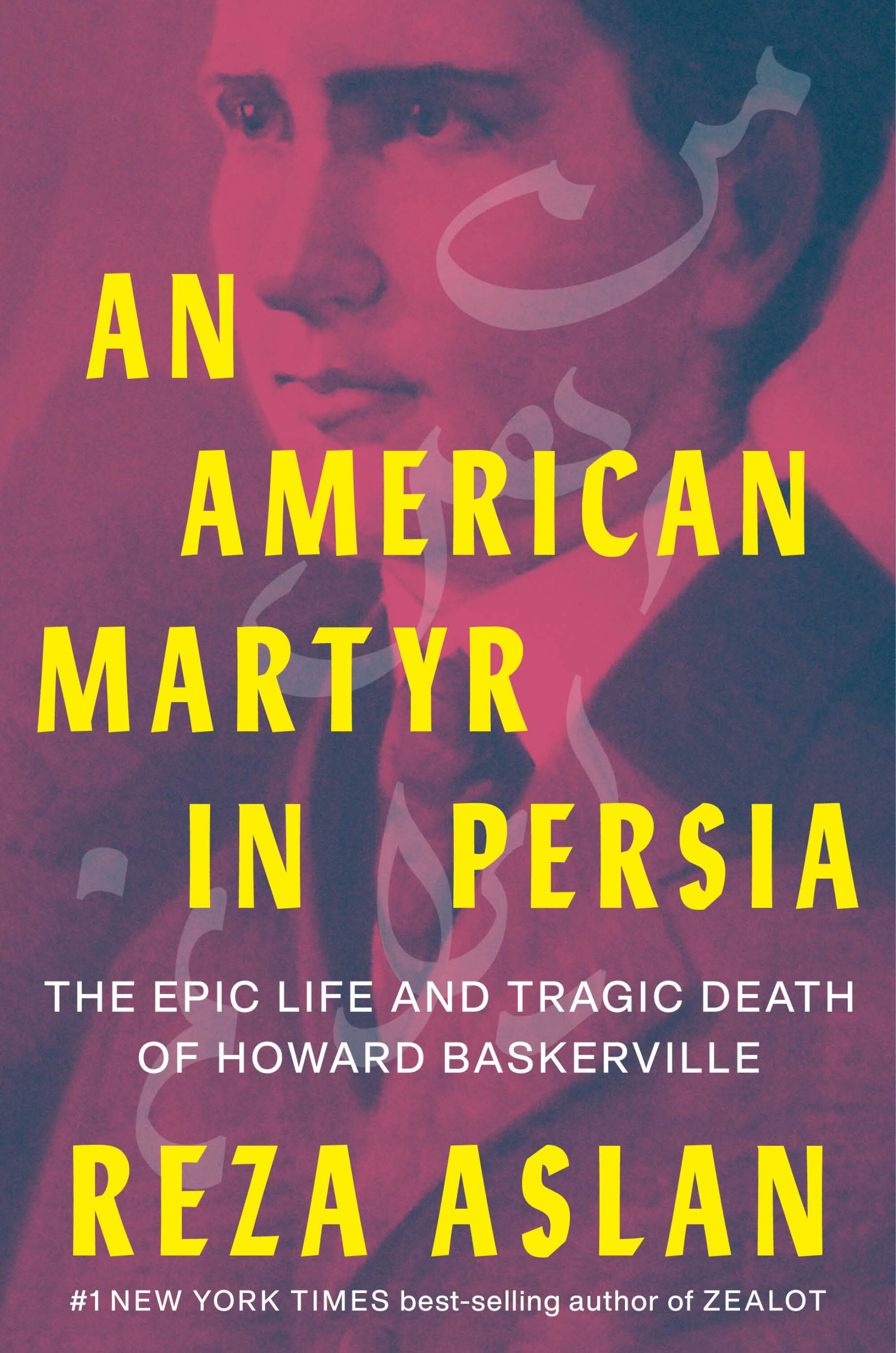
Earlier waves of protests — for example over corrupt elections in 2009 — “were fighting for changes, for reforms,” Aslan says. “Gen Z has no interest in fixing anything. They want to burn it to the ground and start all over again, and they are uncompromising. You’re talking about two sides that refuse to compromise. It will end in violence.”
And so it has for more than a century, as Iran struggled first against repressive autocracy and then against extreme theocracy. It goes back, at least, to the period covered in Aslan’s new book, a nonfiction account of Howard Baskerville, a young missionary from Nebraska sent to Iran in 1907, where he became embroiled in a national uprising.
At the time, anti-authoritarian revolt was spreading globally and Iran’s leader, Mohammed-Ali Shah, found himself confronted by a constitutionalist uprising. To the north, Nicholas II of Russia had just put down a revolution in 1905 and was dead set against similar unrest on his southern border with Iran. His advice to the shah was to immediately dissolve parliament.
In Tehran, the shah managed to silence the protest. But the country’s second-largest city, Tabriz, dug in for a siege. Finally, when his dear friend and fellow teacher Hassan Sharifzadeh was killed in the spring of 1908, Baskerville could sit quietly no longer. Against the policy of the U.S. government, he put down his pen and picked up a rifle. Constitutionalist leader Sattar Khan recognized the value of an American joining the effort and quickly elevated him to his No. 2.
“This revolution had been begging the American government for support and help for years and they couldn’t understand why that help wasn’t coming,” says Aslan, adding they felt a kinship with Americans who had similarly thrown off a king’s yoke. “Having an American finally fight with them, they knew it would get attention.”
Muslim religious scholar Reza Aslan is Internet famous for keeping his cool.
Russia sent advisors and military experts to Tehran to help the shah; the British, meanwhile, nominally supported the constitutionalists — who succeeded in forcing reforms. A few months later, however, came the Anglo-Russian Convention, an agreement to divide the country’s resources while propping up the shah and dooming the reformers.
In 1953 outside interference was again instrumental in thwarting democracy; the U.K. and the U.S. engineered a coup d’etat to overthrow duly elected Prime Minister Mohammad Mosaddegh. His great sin: a plan to nationalize the country’s lucrative oil industry, cutting Western powers out of profits.
“When you look at the 20th century history of Iran, it is essentially all about foreign interference,” Aslan notes. So when the Iranian government attributes legitimate demonstrations to outside influences, it might be an obvious lie — but it’s a plausible one.
After lunch in Tehrangeles, Aslan rushes to Pasadena to pick up his kids from school. He lives with his wife, entrepreneur Jessica Jackley, and their four children in Highland Park. Irrespective of any threats, he is shifting from his status as a public figure these days, planning to focus on nonfiction writing. And at 50, he has decided to put that MFA in creative writing to work on a sci-fi series he just sold to Netflix.
But he is not turning his back on the fierce advocacy that has driven his career (and occasionally sidelined it). “I’m not saying Americans need to grab a rifle and go fight,” he says, alluding to Baskerville. “But we need to make sure we elevate the cries of the people in Iran, that we keep it in the news and make sure the Iranian government understands there will be consequences to horrific repression.”
Baskerville died within weeks of joining the fight for democracy. He was 24.
How some Iranians in exile are smuggling banned books into Iran while inspiring the next generation of writers
“I think freedom is the will of God,” Aslan says. “There’s nothing unique about America or white people or Christians that makes them more deserving of a say in the choices that run their lives. All people deserve those things. I think that’s something Baskerville truly understood: the responsibility that we in America have to those who are fighting for rights we take for granted.”
More to Read
Sign up for our Book Club newsletter
Get the latest news, events and more from the Los Angeles Times Book Club, and help us get L.A. reading and talking.
You may occasionally receive promotional content from the Los Angeles Times.
